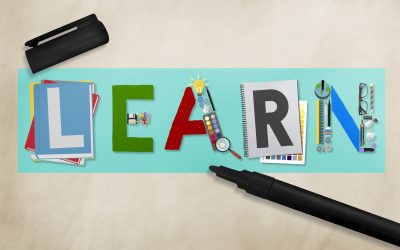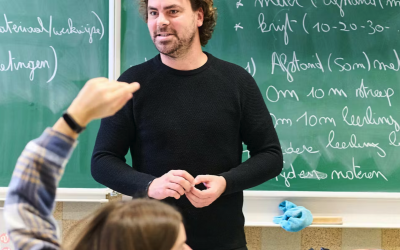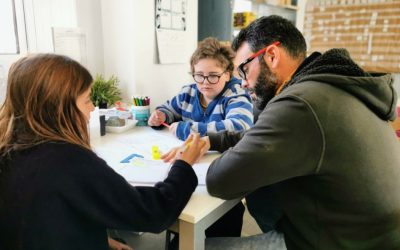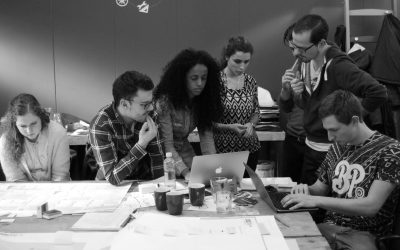In this insightful interview, we had the privilege to speak with Willy Wijnands, a distinguished chemistry teacher and the founder of eduScrum. With a career spanning over four decades, Willy has been at the forefront of revolutionizing education through the agile learning methodology.
This interview took place online, between the team members of A4C and Willy. Willy’s innovative approach to education empowers students to take ownership of their learning, work collaboratively in teams, and continuously improve. Teachers and those interested in Agile Methodology will find valuable insights for the day-to-day execution of such a method.
Q1: Could you please introduce yourself and tell us about your background in education?
I’m Willy Wijnands, a chemistry teacher with over 44 years of experience in the field. In 2011, I founded eduScrum, a modified version of the Scrum framework tailored for education. I’ve been training teachers and implementing agile learning practices in schools across the Netherlands and internationally.
Q2: What does agile learning mean to you? Can you briefly explain its key principles?
Agile learning, to me, is about giving freedom and ownership to student teams and allowing them to work transparently. It involves working in short cycles, focusing on learning outcomes, personal and team development, and continuously improving the learning process.
Q3: How did you come across the agile learning methodology?
A friend of mine, who had recently undergone Scrum training with Jeff Sutherland, introduced me to the Scrum framework. I saw the potential to adapt it for education and thus created eduScrum.
Q4: What do you appreciate the most about the agile learning methodology?
The aspect I appreciate the most is the freedom and ownership it gives to student teams. Witnessing students working together in an enjoyable and transparent manner, and seeing their personal growth, brings me great joy.
Q5: How do you adapt the curriculum to provide student ownership of learning?
While adhering to the curriculum and standardized exams, I design projects that align with the curriculum and provide students with a sense of purpose. By explaining the “why” behind each project and making it relevant to their lives, students can see and feel the benefits, making them more engaged and motivated.
Q6: What role do facilitators play in your school?
Facilitators in our school act as coaches rather than traditional teachers. They provide guidance, resources, and support to students, empowering them to take ownership of their learning process.
Q7: How are student conflicts managed in your school?
Student conflicts are addressed through open communication and fostering a safe and respectful environment. We teach conflict resolution skills, promote understanding and empathy among team members, and guide students to resolve conflicts collaboratively.
Q8: What are the key principles of your school, and how do they shape the daily life of students?
The key principles of our school include giving freedom and ownership to students, working in short cycles, focusing on learning outcomes, and promoting continuous improvement. These principles shape the daily life of students by providing them with autonomy, collaboration opportunities, and a growth mindset.
Q9: Could you describe a typical day or week at your school?
A typical day at our school involves students working in teams on various projects and learning activities. They engage in short cycles of work, collaborate transparently, and receive guidance from facilitators who act as coaches. This allows students to actively participate in their learning process and develop their skills.
Q10: How do you support students in accomplishing their goals? For example, if a student wants to learn Japanese, what steps are taken?
We support students in accomplishing their goals by providing resources, guidance, and coaching. If a student wants to learn Japanese, we help them explore available resources, potentially connect them with language learning opportunities or experts, and assist them in setting realistic and achievable milestones.
Q12: What are the biggest challenges you face daily while working in an agile learning center?
One of the challenges is navigating the fixed curriculum and standardized exams while trying to provide student ownership and freedom in learning. However, by framing subjects into projects and emphasizing the “why” behind them, we can overcome this challenge.
Q13: Could you share an example of the best day you’ve had at school recently and why it was the best?
One of the best days was when I witnessed students working passionately in their teams, collaborating effectively, and achieving their learning outcomes. It was a fulfilling experience to see them grow both academically and personally.
Q14: On the other hand, could you describe the worst day you’ve had at school recently and what made it challenging?
The most challenging days are often filled with unproductive teacher meetings that hinder progress and innovation. While some meetings are necessary, ineffective ones can be frustrating, impeding the momentum of agile learning.
Q11: Are you connected to other schools using the agile learning methodology? If not, would you like to be, and what would you like to share or gain from such a network?
Yes, I am connected to other schools using the agile learning methodology. We exchange experiences, best practices, and challenges, which enriches our collective knowledge. I would encourage more schools to join the network to foster collaboration and share insights to further enhance agile learning practices.
The Ashram College, situated in the towns of Alphen aan den Rijn and Nieuwkoop in the Netherlands, is a renowned secondary educational institution. With its inception dating back to 1929, the school caters to students pursuing VWO programs with options that encompass classical languages like Latin and Greek, as well as HAVO and VMBO-T tracks. It holds a distinct identity as a Catholic school.
Follow our social media channels to be the first to know about upcoming news, and don’t miss out on this opportunity to connect with professionals within our community.
👍 https://www.linkedin.com/company/agile4collaboration
📷 Image by Freepik











0 Comments